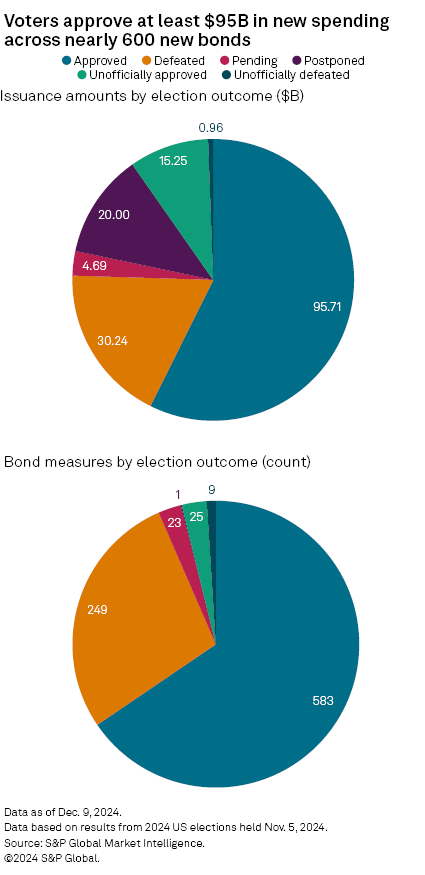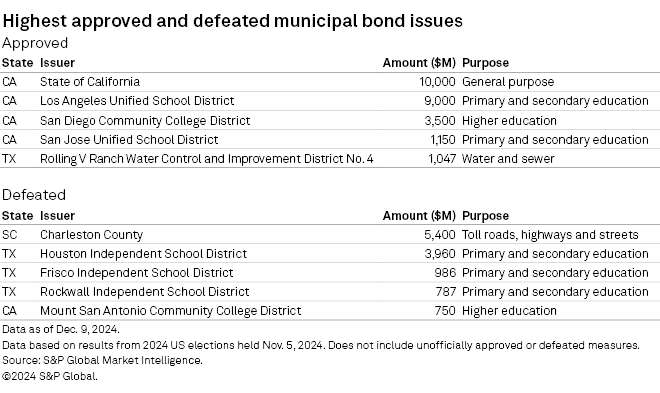US voters on Election Day approved a flurry of new spending for states, cities, counties, schools and special government districts.
As of Dec. 9, voters officially approved ballot measures allowing the issuance of $95.71 billion in new government bonds across 583 ballot measures, according to the latest data compiled by S&P Global Market Intelligence. Another $15.25 billion across 25 measures may be approved, though official results from those elections were still outstanding.

Voters approved more than two-thirds of spending measures put before them. Many government jurisdictions require voter approval for new debt issuance.
Largest measures
On Election Day, California voters approved $10 billion in new spending for infrastructure at public schools, community colleges and trade schools. The ballot question, Proposition 2, was the single largest measure approved by voters on Election Day, according to Market Intelligence data. Education in California was a common theme among the largest approved ballot measures, with four of the five largest measures connected to education. An exception was more than $1 billion approved for water and sewer upgrades for a community services district in Texas.

Three of the five largest defeated ballot measures came from Texas jurisdictions. Voters there rejected more than $5.73 billion in new spending across three school districts. However, the largest rejected measure was tied to a half-cent sales tax in Charleston County, South Carolina, which would have raised $5.40 billion for highway improvements.
California goes big as most states tackle spending questions
Voters in California approved 166 measures totaling $50.78 billion in new spending, more than half of the total approved spending across the US and the highest total for any state, according to Market Intelligence data.
Texas voters approved the next highest amount of total spending at $25.18 billion across 162 ballot questions. The two states also recorded the largest total spending rejections, with $9.26 billion in measures defeated in Texas and $8.39 billion in defeated measures in California.



